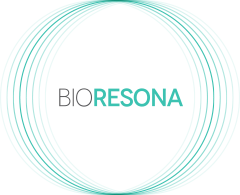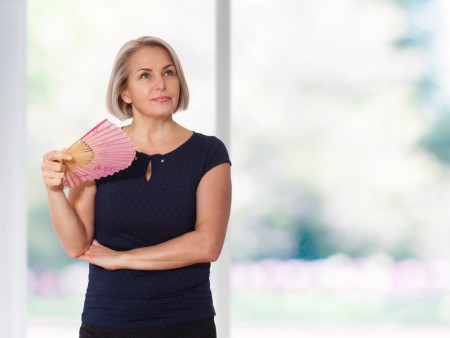Menstrual disorders and PMS
Premenstrual syndrome (PMS) is a term for various symptoms that many women of childbearing age experience before menstruation. It is a poorly defined condition and often dismissed by the medical profession, but can have a serious impact on women's quality of life.
What Causes PMS?
There are several factors which contribute to its development:
- Hormonal imbalance. The signs and symptoms of premenstrual syndrome are linked to fluctuations in hormone levels and disappear with pregnancy and menopause.
- Fluctuations in the levels of serotonin, which is thought to play a key role in mood regulation, as well as the regulation of fatigue, food cravings and sleep patterns. Low levels of serotonin in particular can contribute to premenstrual depression.
WHAT ARE THE SYMPTOMS OF PREMENSTRUAL SYNDROME?
| Emotional | Behavioural | Physical |
| Stress | Appetite changes and food cravings | Weight gain associated with fluid retention |
| Anxiety | Difficulty sleeping | Breast sensitivity |
| Bad mood | Social withdrawal | Abdominal bloating |
| Crying | Lack of concentration | Joint or muscle pain |
| Mood swings | Acne outbreaks | |
| Irritability | Tiredness | |
| Anger | Headaches | |
| Constipation or diarrhea |
What can you do to help yourself?
It is important to adopt a holistic approach - everything is a factor, from nutrition to your wellbeing.
- Eating and drinking: A healthy, balanced diet is key to your wellbeing in general, let alone to managing PMS.
- Increase fiber intake by eating vegetables, fruits, nuts, seeds, beans and whole grains. Two tablespoons of flaxseed can be especially helpful in eliminating constipation and balancing hormone levels.
- Increase your omega-3 fat intake by eating more wild fish such as mackerel, sardines, herring and wild salmon, as well as eggs, nuts and omega-3 supplements.
- Reduce trans fats and hydrogenated fats (mostly found in processed foods like biscuits and ready meals).
- Keeping salt intake low can help reduce fluid retention.
- Reducing intake of refined carbohydrates, sugars, and processed foods will help balance blood sugar levels and may help reduce mood swings.
- Decreasing caffeine (in tea, coffee, cola, cocoa, chocolate, etc.) can help reduce breast sensitivity. Try drinking peppermint tea and chamomile tea instead.
- Reducing your alcohol intake can help reduce fatigue and improve your sleep patterns.
- Take time to rest. Learn how to breathe with your belly [VSTAVI .pdf breathing technique]. Even 10 minutes a day is enough to make a difference. Review your weekly tasks and try to free up time for resting and relaxation.
- Be active. Women who exercise regularly say they have less problems with PMS.
- Try to exercise for 30 minutes each day. This also includes walking and using stairs.
- Choose an activity you'll like doing – for example dancing or swimming lessons.
- Consider whether you prefer yoga and tai chi. For long lasting balance.
- Sleep: Getting enough sleep (8 hours/night) is essential for hormonal balance. Make sleep a priority and follow the rules of sleep hygiene if you experience problems.
- Environment: Decrease hormonal properties that mimic your environment.
- If possible, eat organic food.
- Switch to natural cosmetic products to avoid hormone-disrupting chemicals such as phthalates.
- Replace plastic bottles and food containers with glass ones (especially if used for heated food) to reduce exposure to BPA - another hormone that disrupts hormonal balance.
- Observe your symptoms: The more you observe and adjust your body accordingly, the more you will understand what is happening. This can relieve feelings of anxiety.
- Note the symptoms. It may be helpful to keep a dated journal of symptoms. Take note of days you feel irritable, anxious, or experience other symptoms of PMS. Once you understand the pattern, you will be able to take extra time to rest and sleep ahead of the predicted symptoms.
- Talk to your family, friends or partner about your symptoms. It will help them understand how you feel and make it easier for them to support you.
When will you feel the difference?
Due to the cyclical nature of PMS it may take 2-3 cycles to evaluate whether your actions have had any effect. Try to remain patient and optimistic. There are many ways to help oneself. It's all about finding the best treatment strategy!
The most effective approach to treating PMS generally combines the aforementioned lifestyle changes with an individualized BICOM bioresonance therapy, homeopathic and herbal remedies, and dietary guidance.
- Contraceptives - the traditional treatment of choice is ovulation suppression. Some women find they benefit from it, while others see their symptoms worsened.
WHAT ARE SOME COMPLEMENTARY AND ALTERNATIVE OPTIONS?
BICOM bioresonance and electroacupuncture
Many women consider BICOM bioresonance and electroacupuncture therapies to be beneficial and to have positive effects on them.
- It has been proven that vitamin B6 and fish oils help treat PMS
- Although nutritional supplements are often viewed as a quick and easy solution, they cannot substitute a healthy diet
- Please refer to the section titled "When will I feel the difference?"
Homeopathy
The best results are produced by constitutional homeopathic therapy, which incorporates a person's medical condition as well as their temperament and inherited and acquired traits.
- Sepia officinalis for PMS marked by apathy, irritability and crying
- Calcarea Carbonica for PMS marked by swollen, sore breasts
- Pulsatilla for PMS marked by depression
- dosage: 30C twice daily for up to 3 days
Zeliščna zdravila
Večina teh zdravil rastlinskega izvora vsebuje rastlinske analoge estrogena in progesterona, ki pomagajo uravnotežiti te hormone v ženskem telesu. Čeprav je objavljenih nekaj študij o njihovi učinkovitosti, nekatere ženske menijo, da so naslednja zelišča koristna:
- Agnus Castus (Vitex agnus castus) - pomaga pri PMS z depresijo
- Črni kohoš (Cimicifuga racemosa) - pomaga pri PMS z anksioznostjo in predmenstrualnimi glavoboli in migreno.
- Pozor: zelišča lahko vplivajo na kontraceptive, zdravila za plodnost, hormonsko terapijo ali katero koli drugo hormonsko zdravljenje
- Agnus Castus (Vitex agnus-castus) - Helps with PMS marked by depression
- Black Cohosh (Cimicifuga racemosa) - Helps with PMS marked by anxiety and premenstrual headaches and migraines
- Caution: Herbs can interfere with the effects of contraceptives, fertility drugs, hormone therapies, or any other hormonal treatment
The BIORESONA centre recommends a combination of approaches to treat PMS based on individual symptoms, medical history and other factors.
Subscribe to our newsletter
Subscribe to our newsletter and stay up-to-date on events, campaigns, benefits.
We will keep you up to date with our news once a month.
Center Komplementarne medicine, Antonina Rome in partnerji, d.o.o., All rights reserved
Website developed by:Izdelava spletnih strani - Spletna postaja





